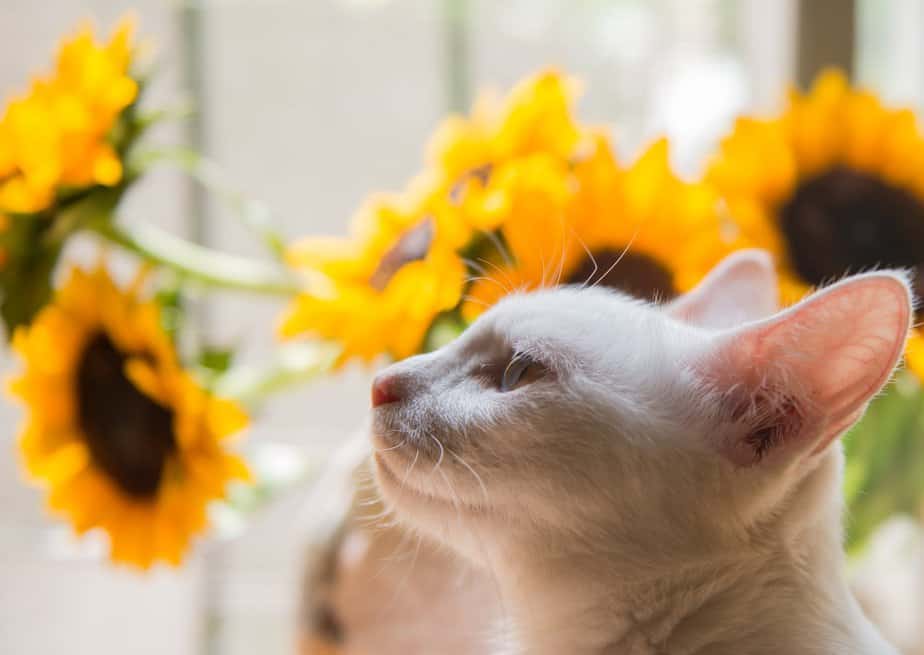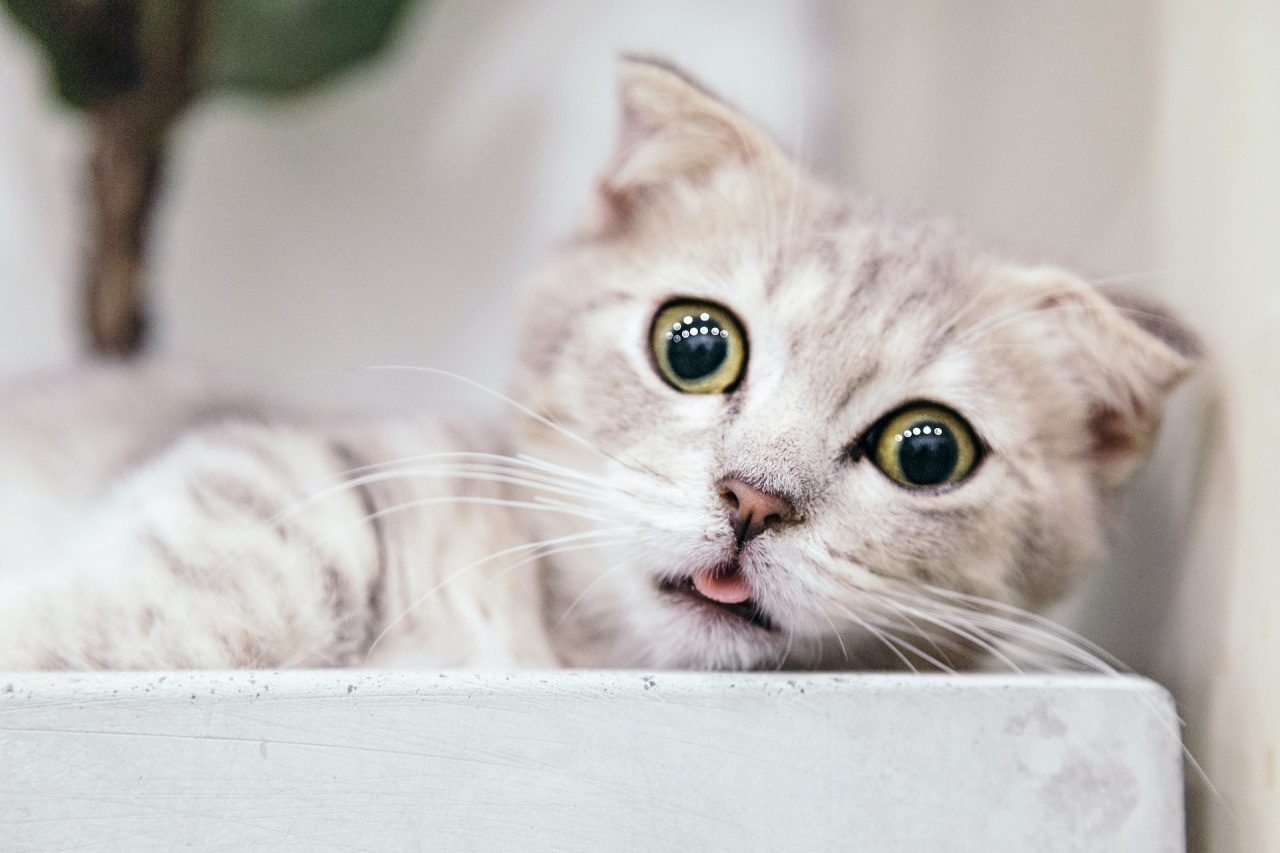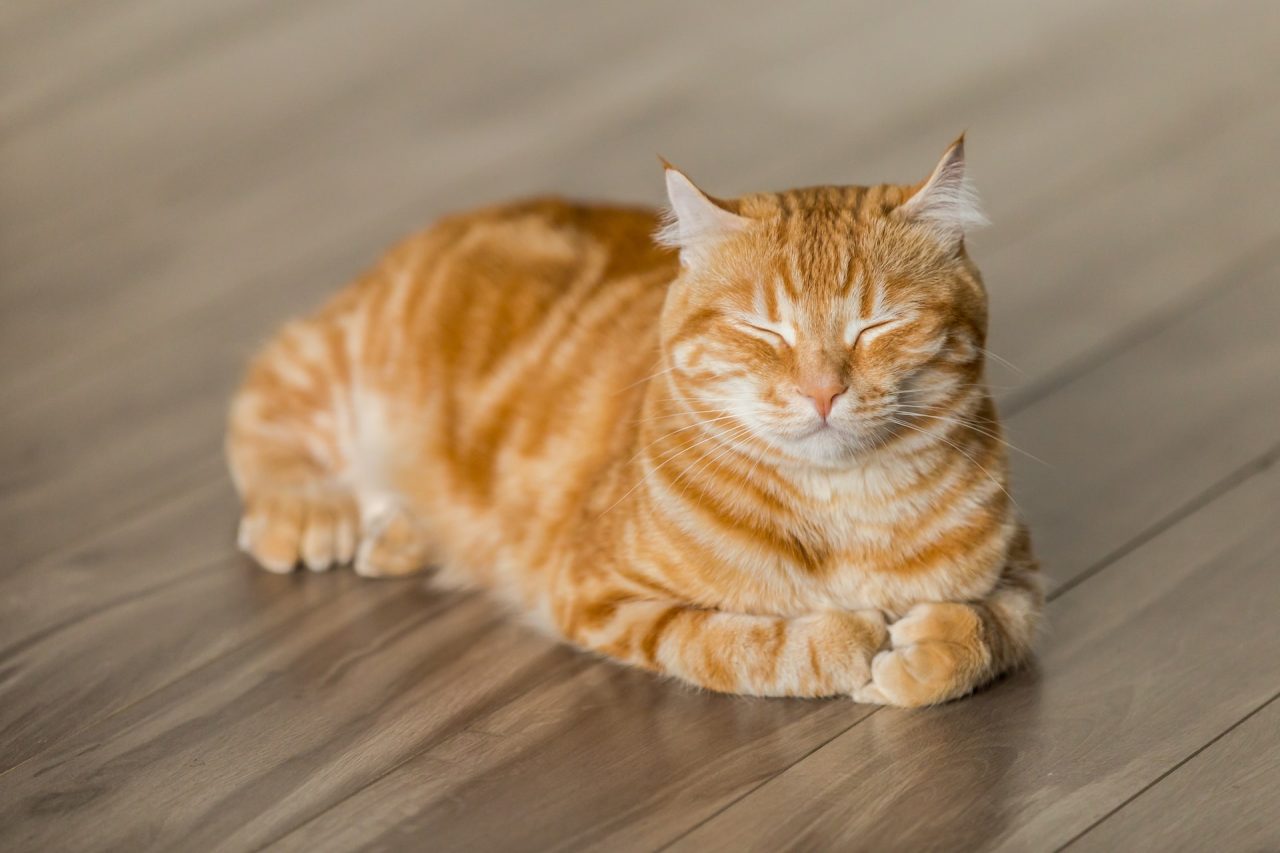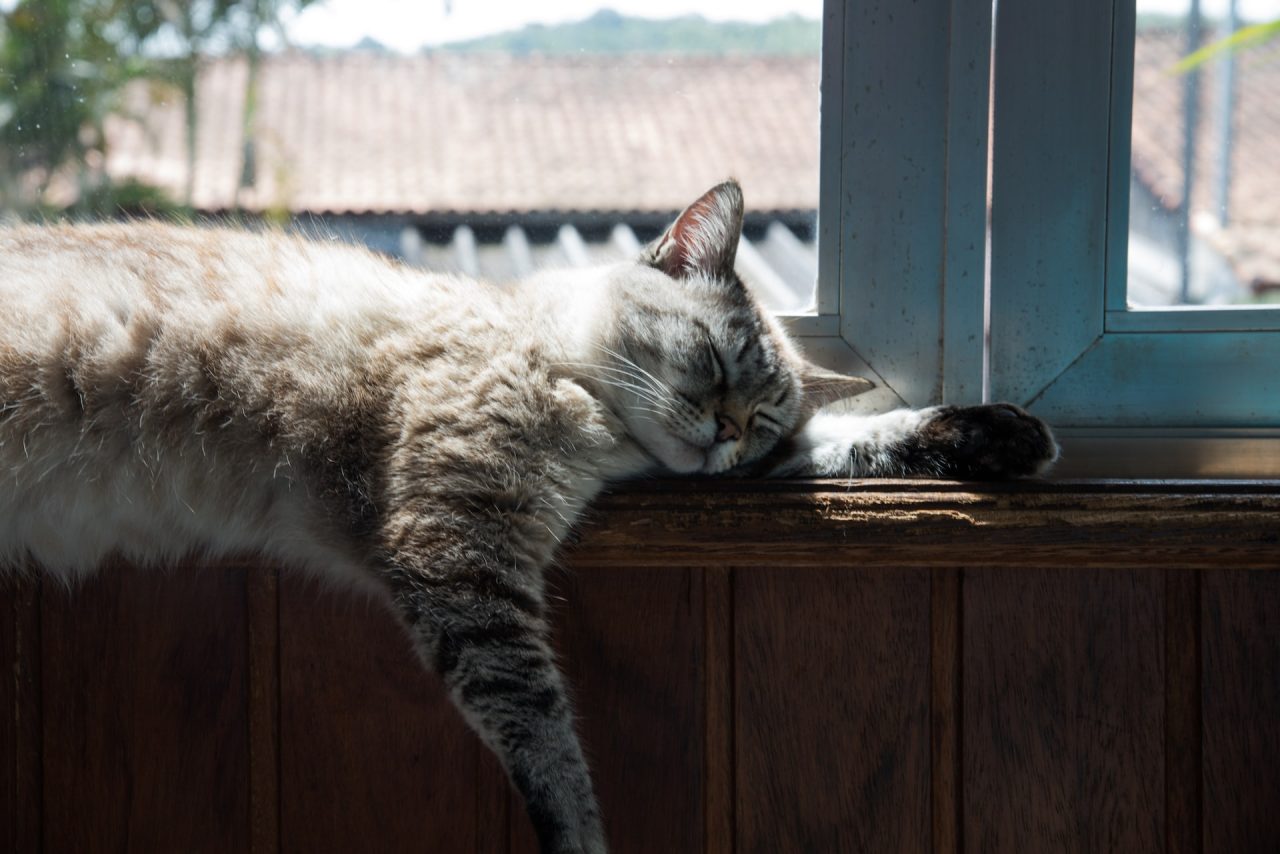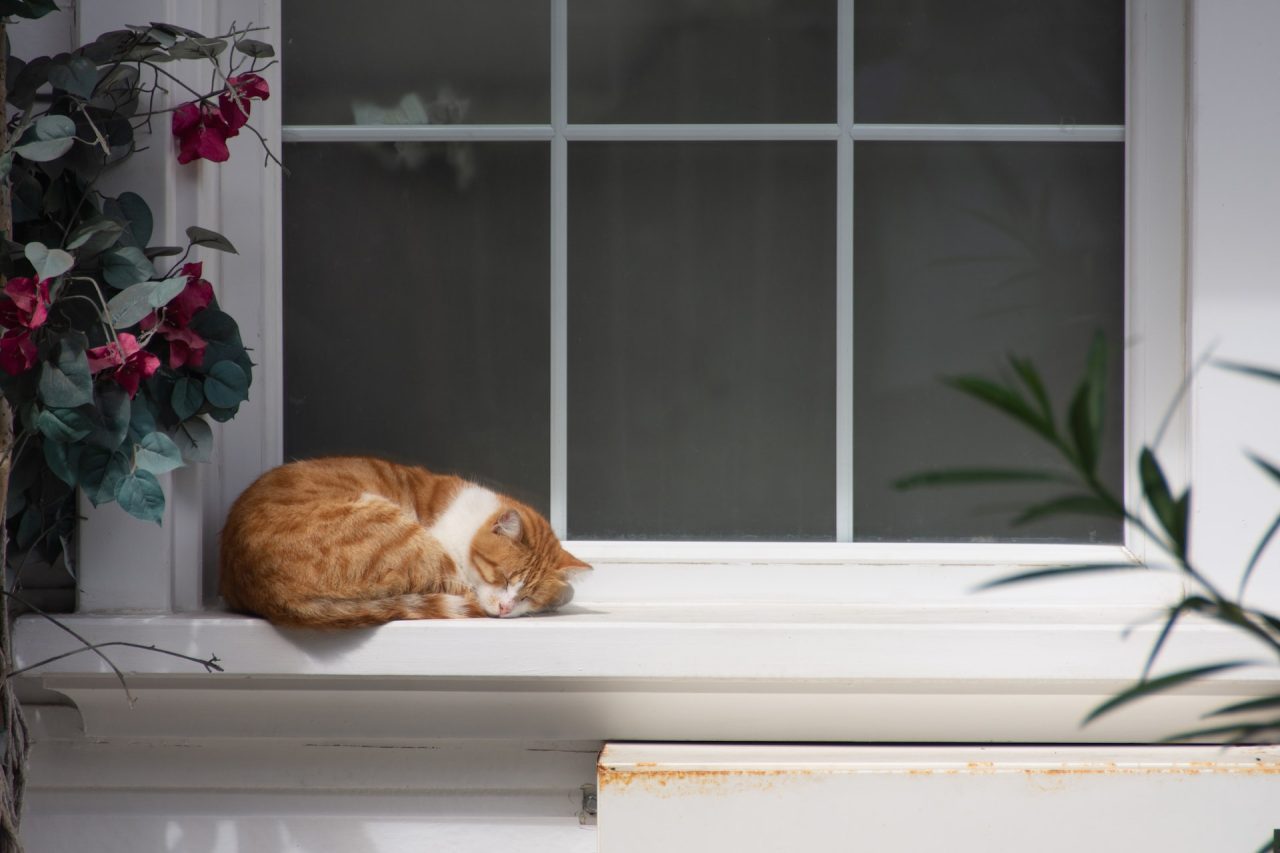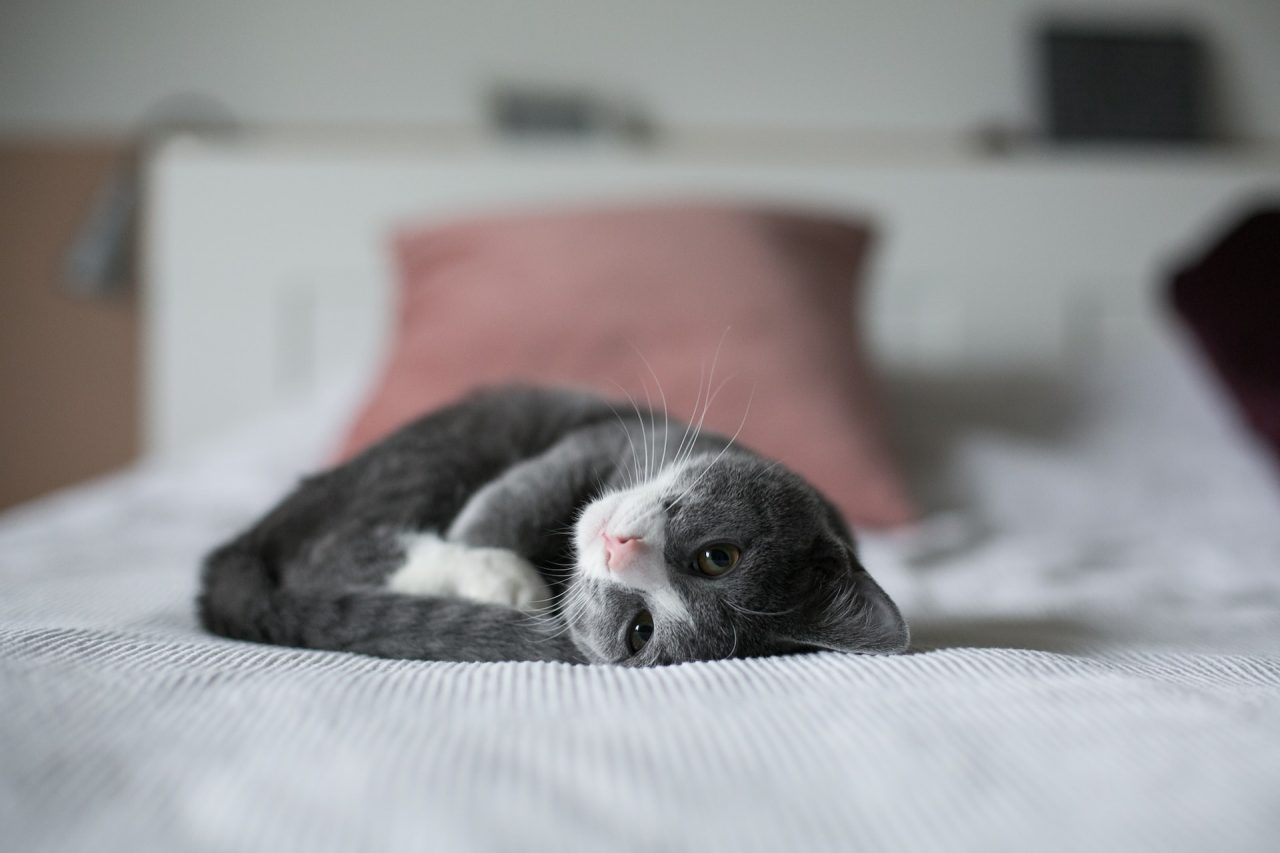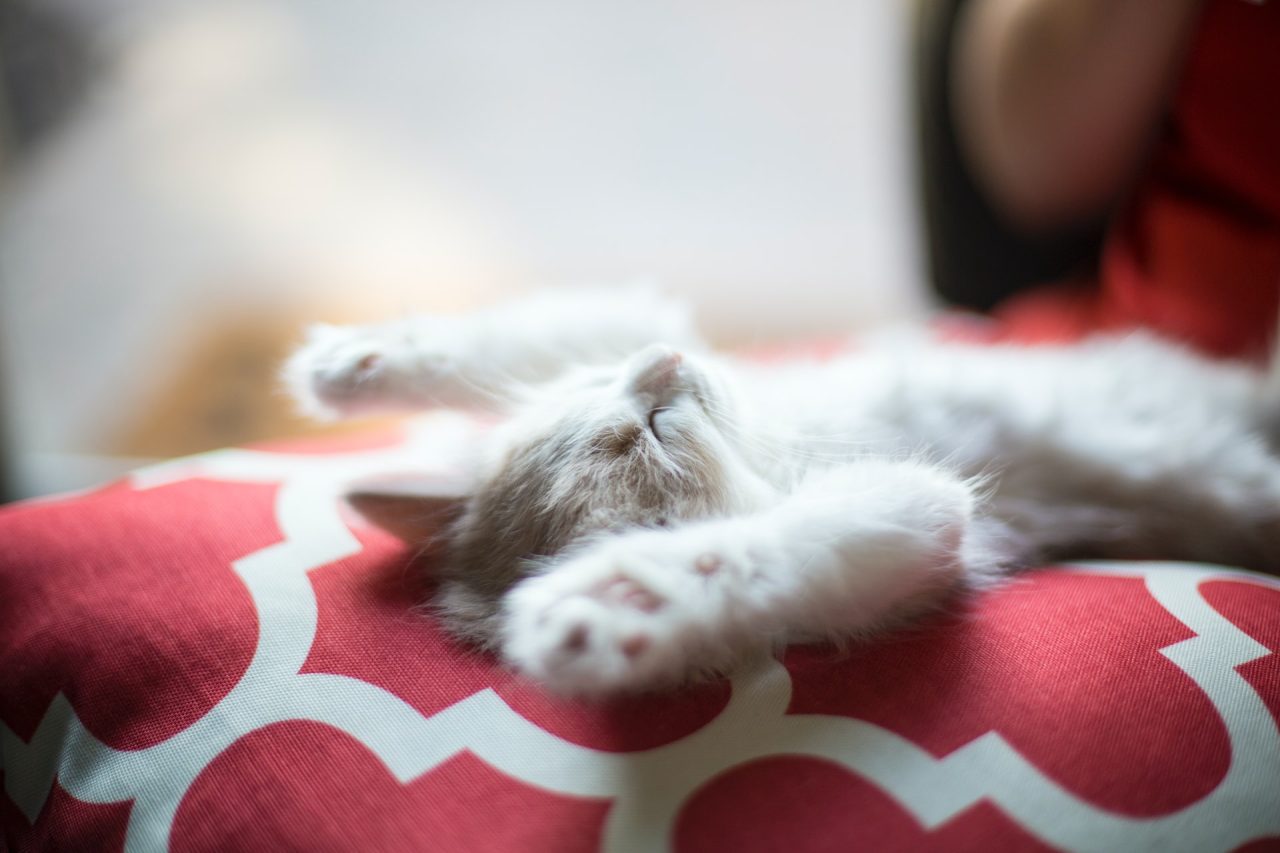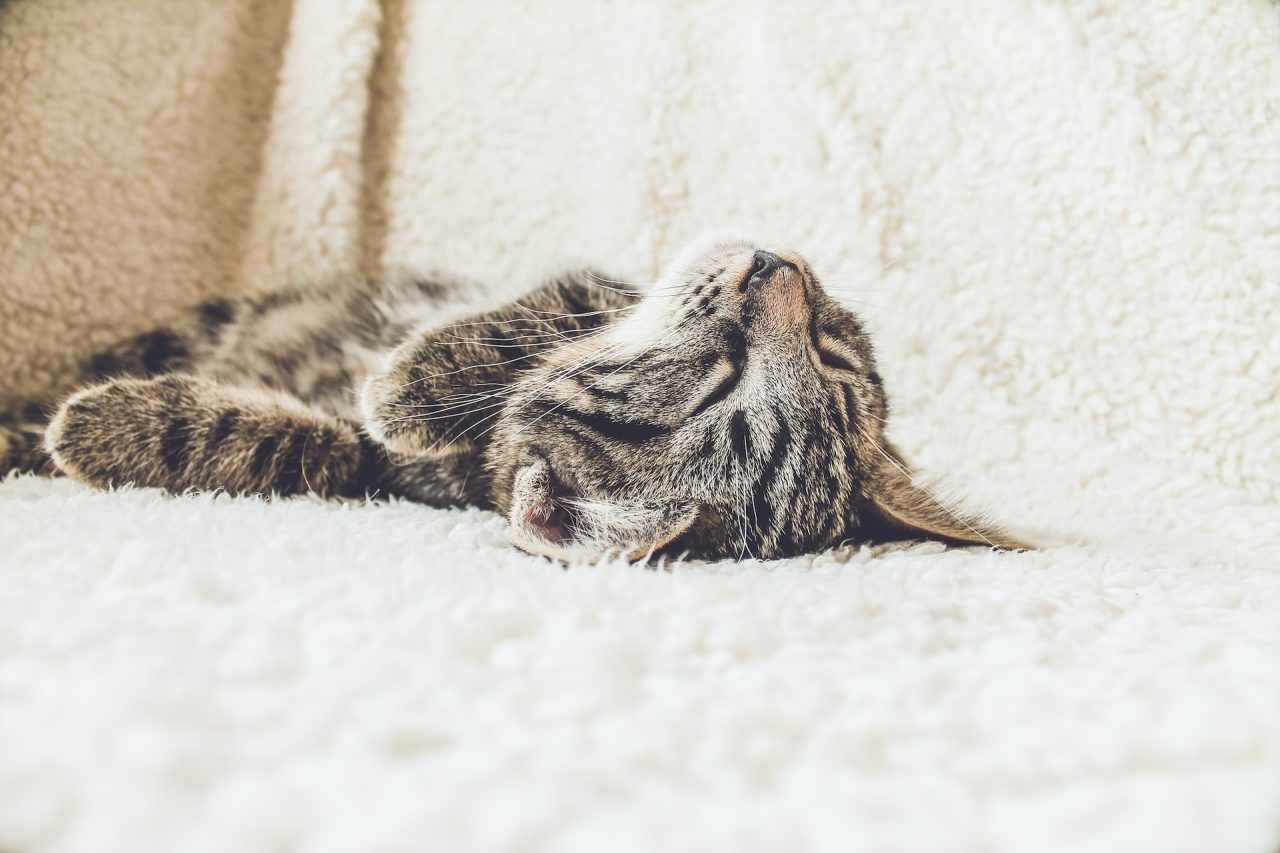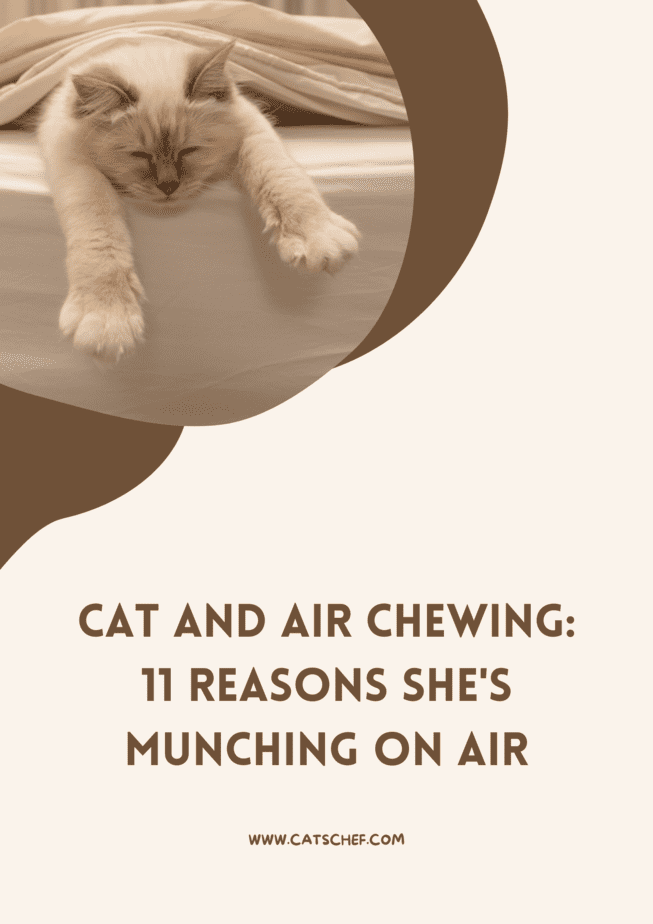📖 Table of Content:
If your cat has been air chewing, or if someone else has mentioned it to you, you might be curious as to what it is and why it’s happening.
Cats express their emotions through unusual, surprising actions. When your feline’s in pain or discomfort, she’ll likely start acting in ways that are uncommon and it may appear strange to you.
When you pet her, she could become more aggressive, stop eating, and grind her teeth. She might even make odd noises, gnaw on nothing, and the list goes on.
If your cat is munching on nothing, that is if she’s chewing on air, it’s likely that there’s something wrong with her.
Perhaps she’s attempting to express how uncomfortable she’s feeling at the moment. However, there are several causes for chewing on nothing.
These behaviors might be weird to you, but they happen for a reason. To learn more about why cats chew on air, continue reading the article.
What is air chewing?
When your cat appears to be biting or nibbling at the area in front of her even if it’s empty, this is known as air chewing. It usually results from various things and is frequently accompanied by biting at the hands or paws.
The first thing is that the cat could be obese and unable to clean herself adequately, and the second is that she might have fleas. Feline Hyperesthesia Syndrome is the third option.
This condition is characterized by symptoms including excessive grooming, air biting, tail chasing, and, in severe cases, convulsions.
Not all cats will exhibit the same symptoms, so a vet examination is a good idea if your cat is suddenly exhibiting behavioral changes like these.
If your cat sometimes chews on the air, it may be an indication of overstimulation or just that their skin is itchy. However, the behavior can be fairly obsessive.
If your pet is biting and scratching at herself, a trip to the clinic is unquestionably required. Check your cat’s ideal weight because, more often than not, obesity or fleas are the only things causing them to scratch or bite the air.
If your cat is a little overweight, your veterinarian can help you create a proper diet and treat any skin irritation that results from their inability to properly groom themselves.
Why is my cat “chewing air”?
Cats’ distinct body language allows them to express their emotions. This includes joy, annoyance, discomfort, and rage. So, all it takes is a little concentration to figure out what they want.
We’ve included all the potential explanations below so you can determine the root of your cat’s inability to chew air. We’ve already mentioned a few things before, but let’s get into the details!
1. Obesity
Cat obesity is among the most frequent causes of air chewing in cats. Because some places are just out of reach, obese cats can’t efficiently groom themselves.
As this is the closest thing they can get to, they start to bite at their legs or the air, which causes skin irritation because your cat can’t keep her hair clean.
Have you ever seen Garfield and the way he’s trying to bathe himself? It looks clumsy and not very gentleman-like.
Bathing themselves is an important thing for felines. That way they keep themselves clean and healthy because of the beneficial bacteria on their tongue.
Other times, it’s a means of communication among felines. Moreover, grooming each other brings them closer. Being unable to lick herself because of her weight could be a major problem.
What else may be causing this, though? Do I need to worry about it? Does this suggest nausea? For these answers and many more, keep reading.
2. Lymphoma
Lymphoma is a malignant lymphatic illness known as feline lymphoma in the cat world. This disease is actually a type of cancer.
It can take place in a feline’s body at any location with a cluster or cells. However, the majority of these tumor cells often appear in the mediastinum, lymph nodes, etc.
You could see signs of lymphoma in your cat, such as weight loss, empty-mouth gnawing, etc. Unfortunately, there are numerous forms of lymphoma in cats.
It can be in either a mediastinal form or a multicentric form that is easily digested. If your cat has lymphoma, your veterinarian can better identify the type she has by running several blood tests on it.
3. Periodontal disease
Your cat may be chewing on nothing as a result of periodontal disease. Periodontal disease affects the mouth (primarily gums or teeth).
Cats that have periodontal disease typically have bacterial infections. This is a serious illness that can lead to oral discomfort, infection, and inflammation.
The cat’s teeth and the surroundings around her mouth might suffer if the problem is not promptly treated. The next time you notice your cat chewing air, you might want to expect what’s going on in her mouth.
4. Abscessed tooth
An abscessed tooth is another frequent cause of this odd chewing habit. It can be uncomfortable for your cats, much like other mouth infections.
Any specific bacterium that enters the cat’s mouth might build up in the teeth and lead to an illness. Later on, this infection causes the gums and teeth to become pus-filled.
The gums produce this pus to fight against infection. It contains white blood cells to stop any further infection. Your cat might not be able to eat due to the illness, which could lead to eventual weakness.
When your pet isn’t able to eat food, things can go downhill pretty quickly. Food is what keeps them alive, of course. The lack of vitamins and minerals can be fatal for your feline.
Therefore, it’s necessary to take quick action when your cat’s oral health is put into question. You wouldn’t want to be hungry, wouldn’t you?
5. Feline chronic gingivostomatitis
Chronic gingivostomatitis in felines can result from periodontal disease (FCGS). This illness usually causes swelling of the feline’s gums. Additionally, ulcers can develop inside the mouth and lips.
Therefore, the cat is unable to fully seal its mouth due to this extremely painful condition. Other signs could include pain that prevents her from eating.
While you might think that your cat chewing on air isn’t dangerous, it definitely could be.
6. A sign of nausea
Your cat may feel queasy if she’s recently altered her diet, consumed a lot of food, or the food was of poor quality. In the worst cases of sickness, your cat might experience digestive issues, heatstroke, etc.
Air chewing that comes from your cat may be an early sign of sickness. Moreover, felines may unknowingly consume substances that are bad for their health. This subsequently becomes a source of illness. Increase your awareness of your cat’s health and take her to the vet as soon as you can.
Furthermore, don’t let your pet play with strange objects. I know it’s easier said than done because they’re such curious and stubborn creatures. Of course, she doesn’t want to look at all those expensive cat toys you’ve bought for her.
However, you should try occupying her with something that’s more cat-appropriate to prevent accidents like these that will result in your cat chewing on air.
7. Broken tooth and a foreign object
Another important factor for chewing on nothing might be a fractured tooth. Cats’ teeth deteriorate with age, especially the canine ones.
The teeth grow so weak that they fall out or break while biting into even the smallest piece of hard object, like food. They’re so fragile and can even cause a ruckus in your pet’s mouth.
The blood vessels and nerves in the tooth pulp come out when a tooth breaks or falls out, which is extremely painful. Additionally, your cat can have something trapped in her mouth from playing or eating.
Your cat is only gnawing on nothing in order to consume whatever is lodged in her mouth.
Try to be sure that your cat didn’t consume any food or plaything lumps. Grab a flashlight, open the cat’s mouth, and take a close look. Remove anything that may have gotten caught in the throat as soon as possible.
Foreign objects are a real danger. Not to mention the cost of the surgery and all kinds of treatments it takes to remove it and get your pet back on her feet.
8. A sign of seizure
In very uncommon circumstances, chewing with an empty mouth can potentially be regarded as a type of seizure. Any poison administered to the cat will cause convulsions.
The convulsions are characterized by a sudden movement of the cat’s muscles. The substance known as pyrethrin is the main reason why cats experience seizures.
This substance may be found in several cat sprays, shampoos, tick and flea medications, etc. Due to direct or indirect pyrethrin exposure, cats may exhibit certain behaviors such as air chewing.
9. Tonsillitis
Despite being extremely uncommon, chewing on air can also be a tonsillitis symptom. Similar to humans, cats have two oval-shaped tonsils in the back of the throat.
Tonsillitis, or the swallowing of the throat, is uncommon in cats and is usually brought on by nausea or other digestive issues.
In general, tonsillitis symptoms go undetected, but your cat may exhibit some peculiar behaviors, such as gnawing on inanimate objects, and you may notice a decrease in appetite.
Tonsillitis can develop into tumors if it’s not treated in a timely manner, which might cause serious issues for both you and your cat.
10. Empty belly
Cats may communicate in a variety of ways, and some have even been seen to mimic chewing when expressing an interest in food. So, depending on the situation, it’s likely that your cat is attempting to communicate with you in some way.
If your pet’s a gobbler and simply loves food, she might be constantly asking for more. I know how it feels to wake up in the ungodly hours to the screeching sound of the hungry cat.
But, remember the first reason for your cat’s air chewing. If you give in too easily to her wishes and demands, you might do more harm than good.
Try alternative activities, such as giving her treats or playing with her, but don’t go crazy on treats. If your cat appears happy and healthy and the air-chewing is more of a casual occurrence, perhaps it’s just a habit. Your cat could simply be requesting attention or a snack!
On the other hand, if you want to be sure that you’re not underfeeding your cat, you can get your kitty an automatic feeder. That way, you’ll be 100% certain that you’re giving her enough food and she’s just being greedy.
This Feeder-Robot by Whisker is a great choice if you’re looking for a one-time investment. It’s a bit bigger than other automatic feeders but you can be sure that your hungry kitty won’t knock it over. It’s easy to set up and offers different serving options so you can control your pet’s portions.
In the end, you’ll finally know if your feline is chewing air all the time because she’s hungry or if there’s some other cause.
11. Oral growth
Cats’ teeth occasionally may not develop in the right pattern or alignment. The majority of kitten cats experience this.
Cats suffering from this condition are unable to properly chew or swallow their food. Chewing on air in such circumstances could be a sign of discomfort or agony. This is an uncommon occurrence that affects specific breeds, such as Persian and flatters.
Final thoughts
For a variety of reasons, you can find your cat chewing on air. The cause might be anything as easy as getting something trapped or lodged in the mouth.
Perhaps it could be a worrying sign of a serious illness like tonsillitis or lymphoma. Be more aware of your cat’s strange behavior, and seek the advice of a reputable veterinarian as soon as you can.
Hopefully, you’ve already identified the major factor contributing to your cat’s unusual chewing habits.
Read more: Cat Grinding Teeth When Eating: Should I Be Worried?
